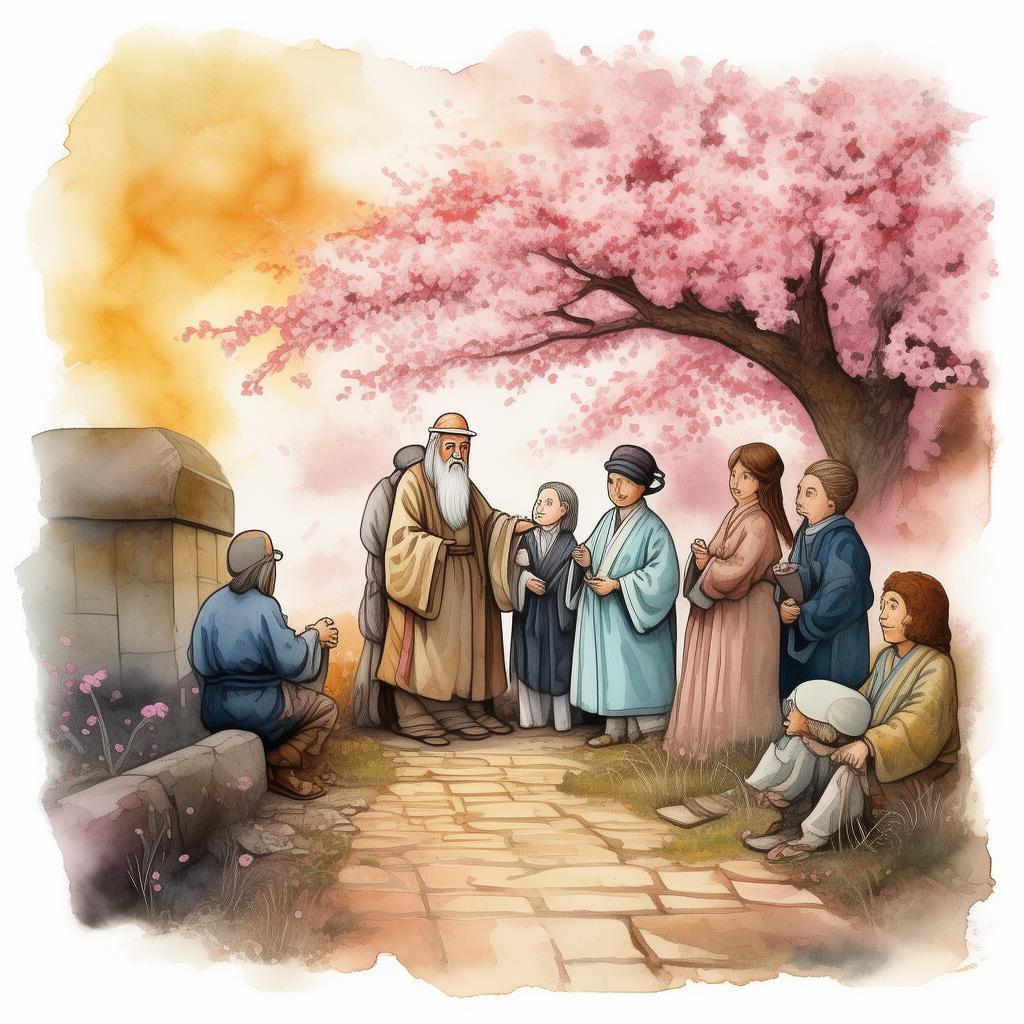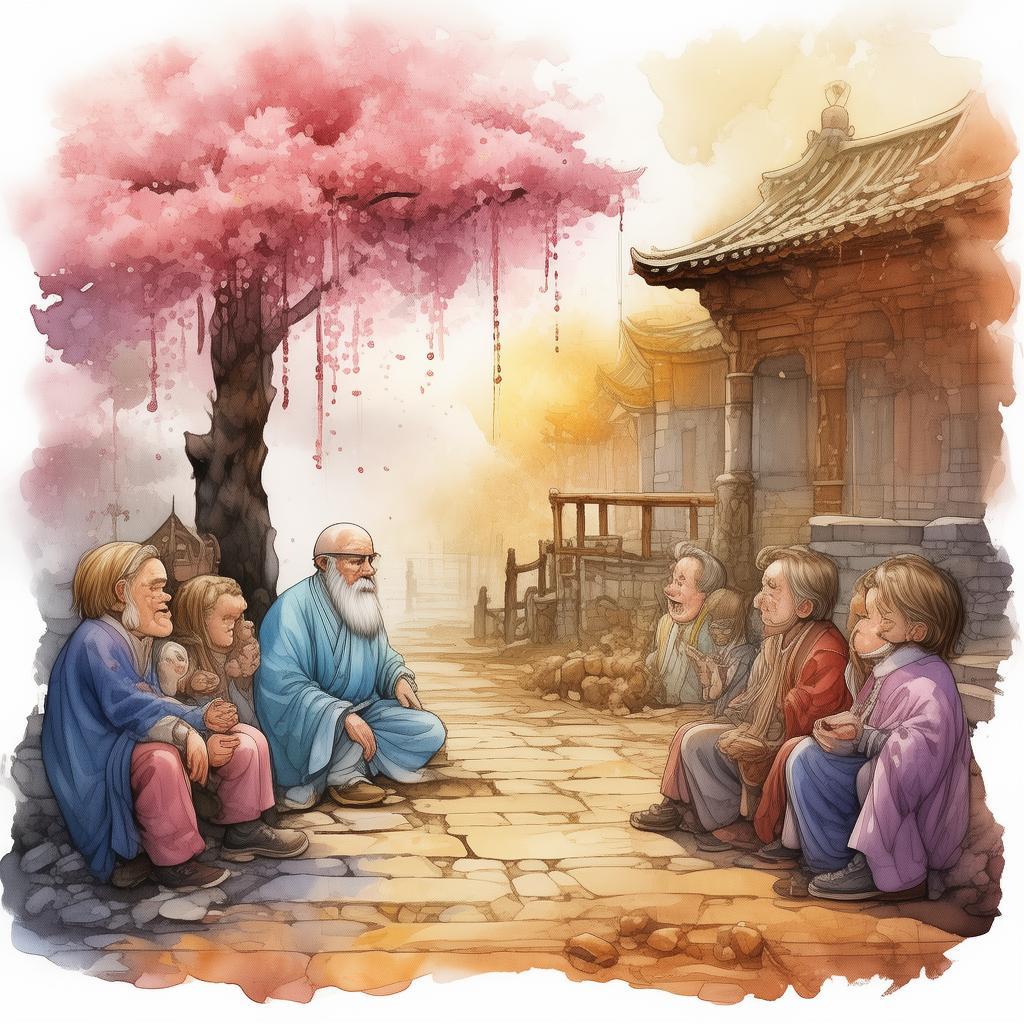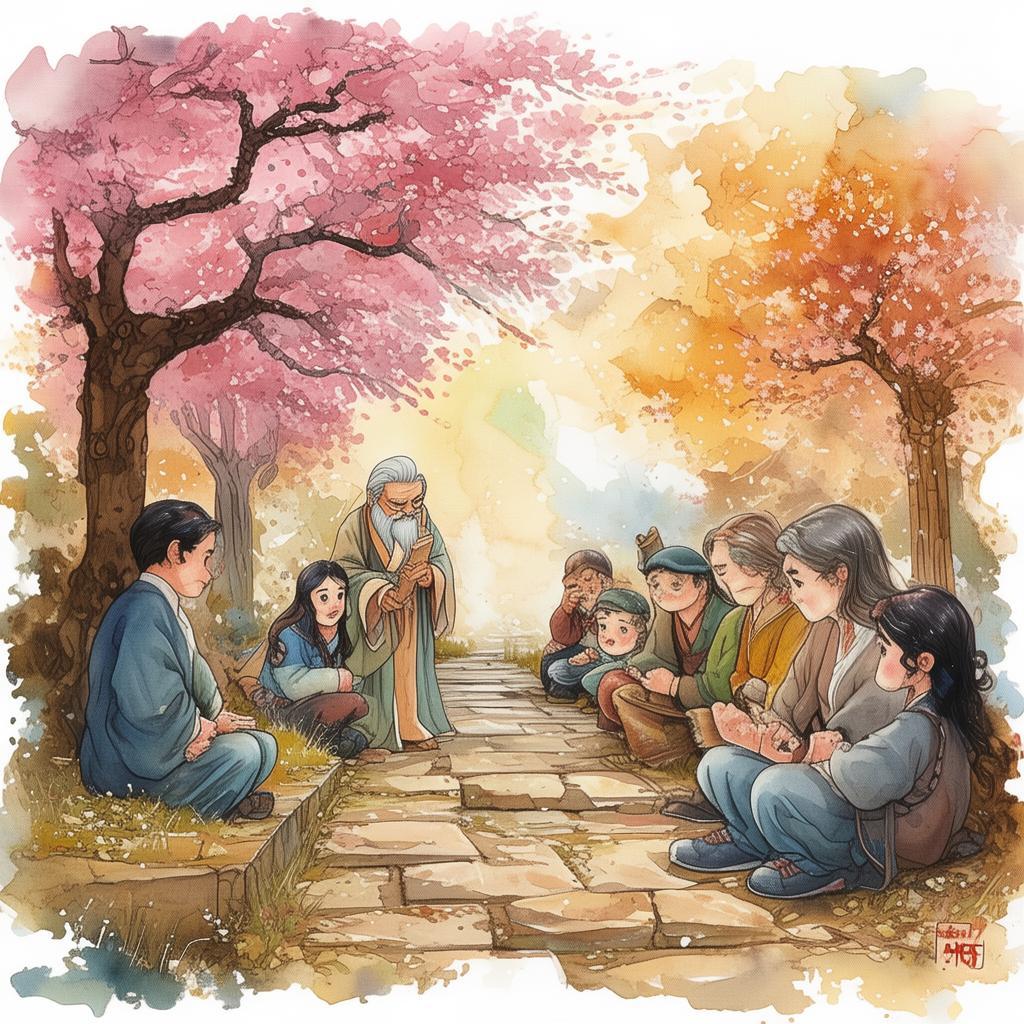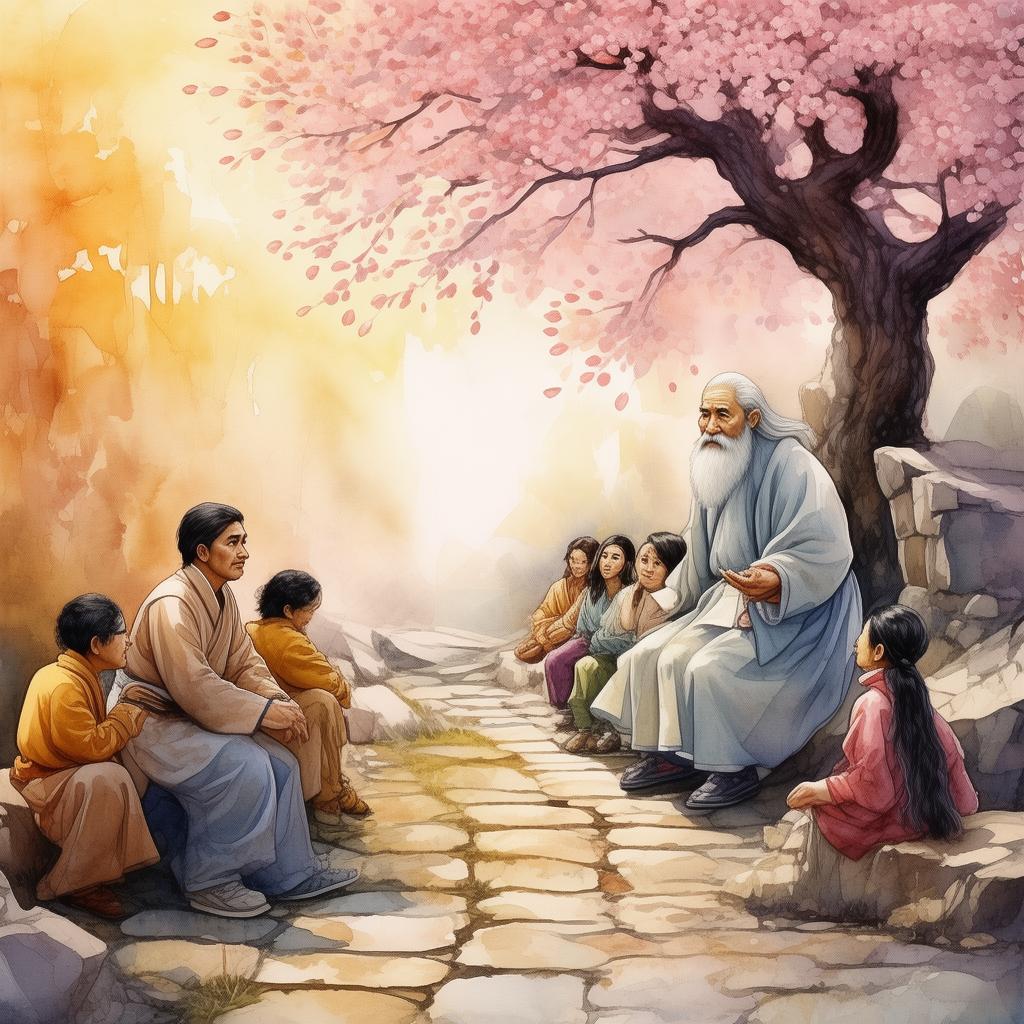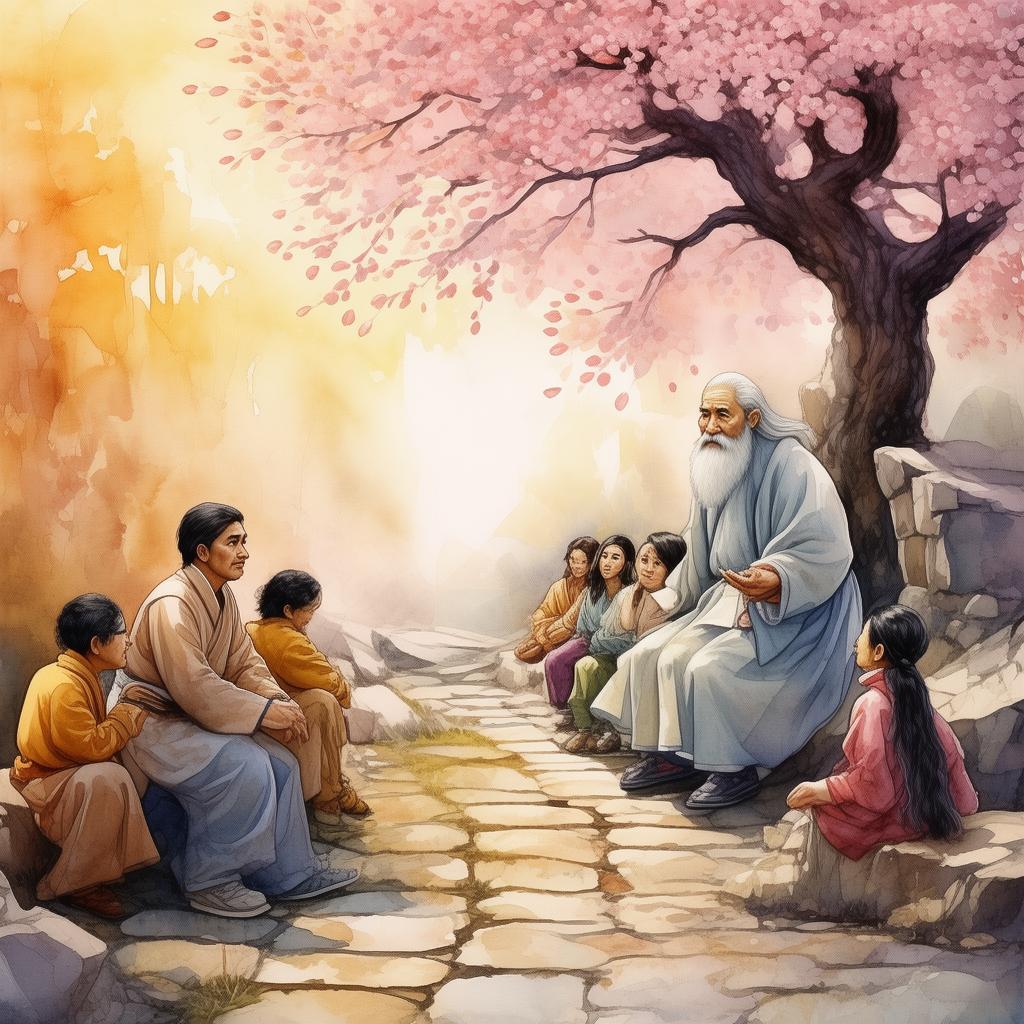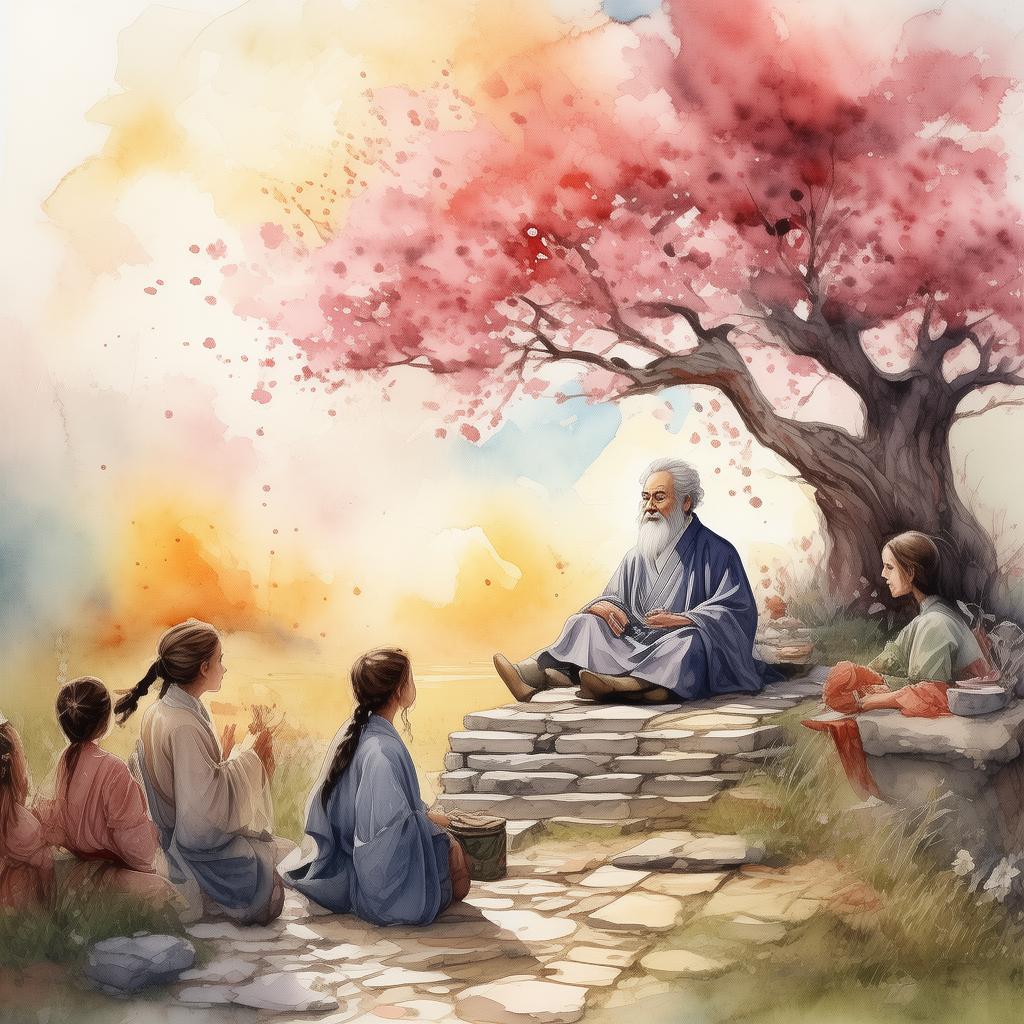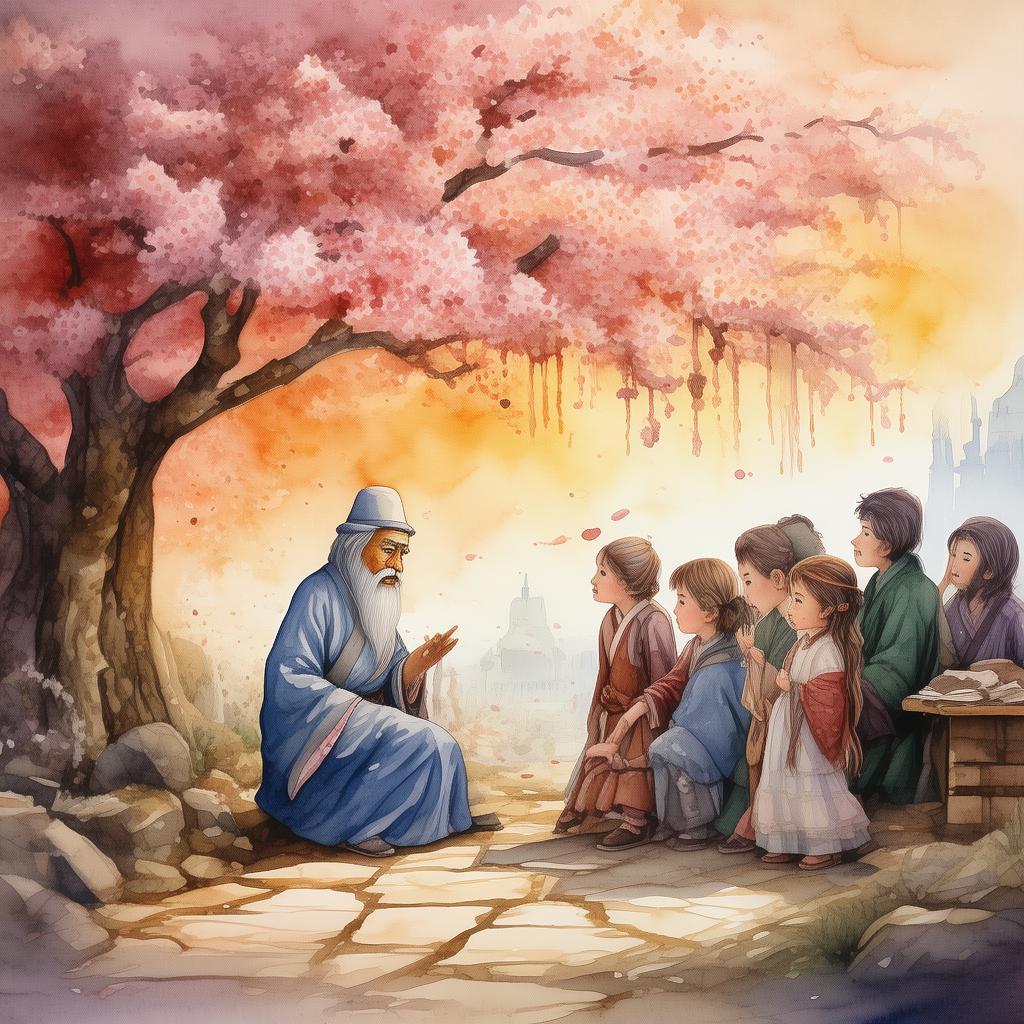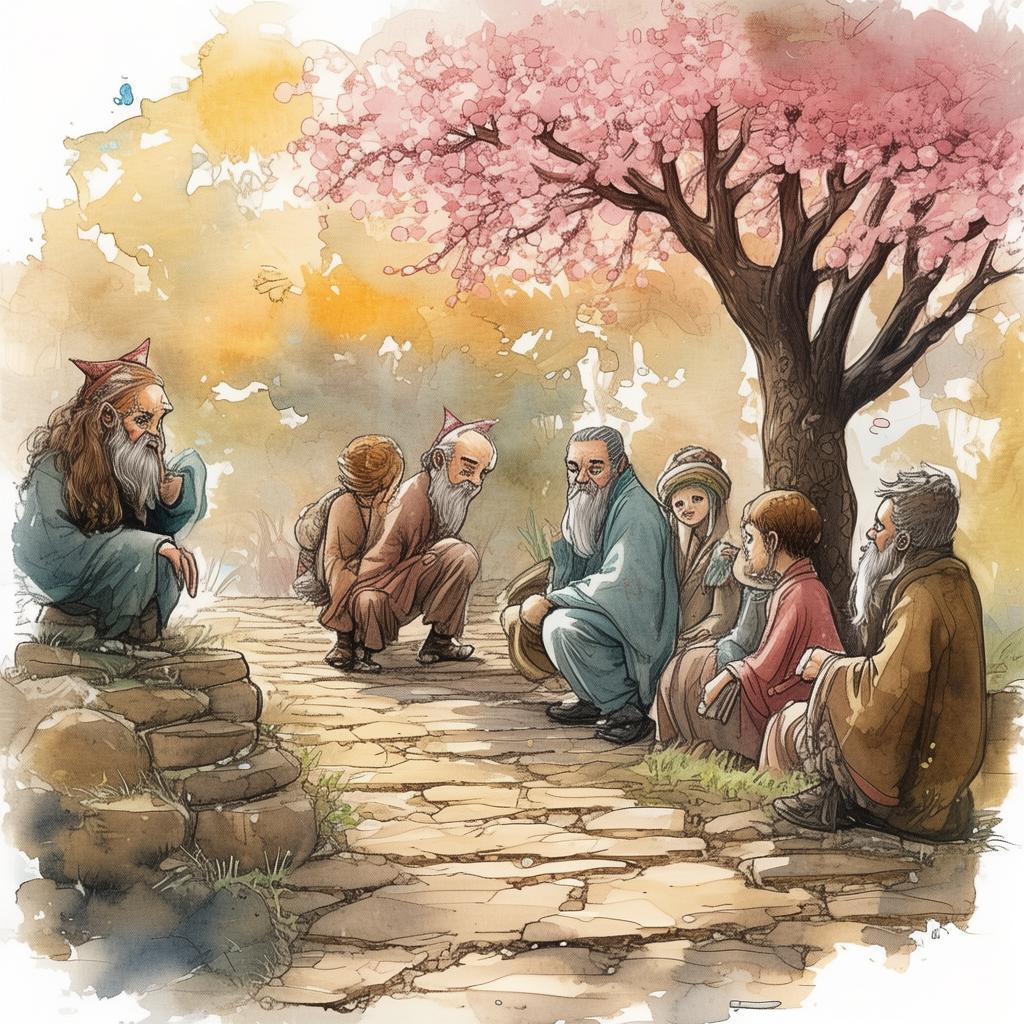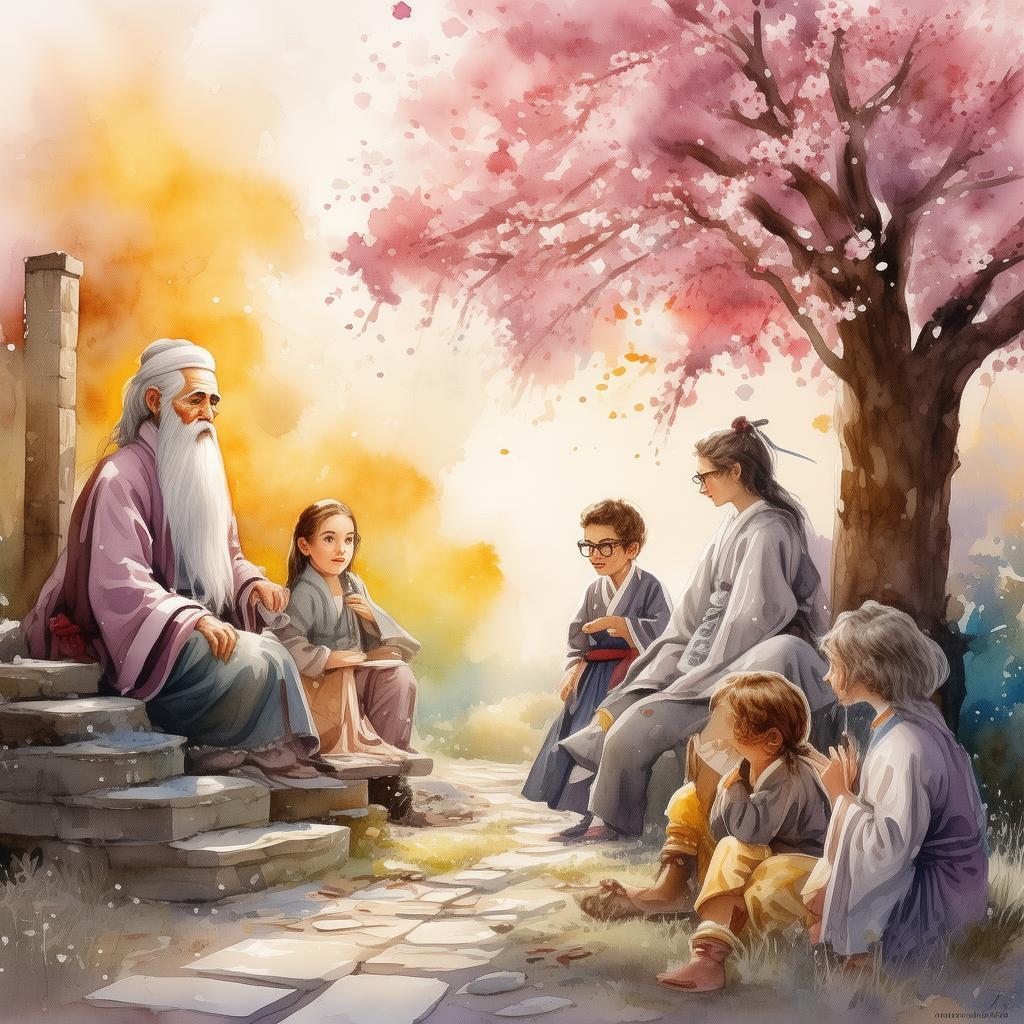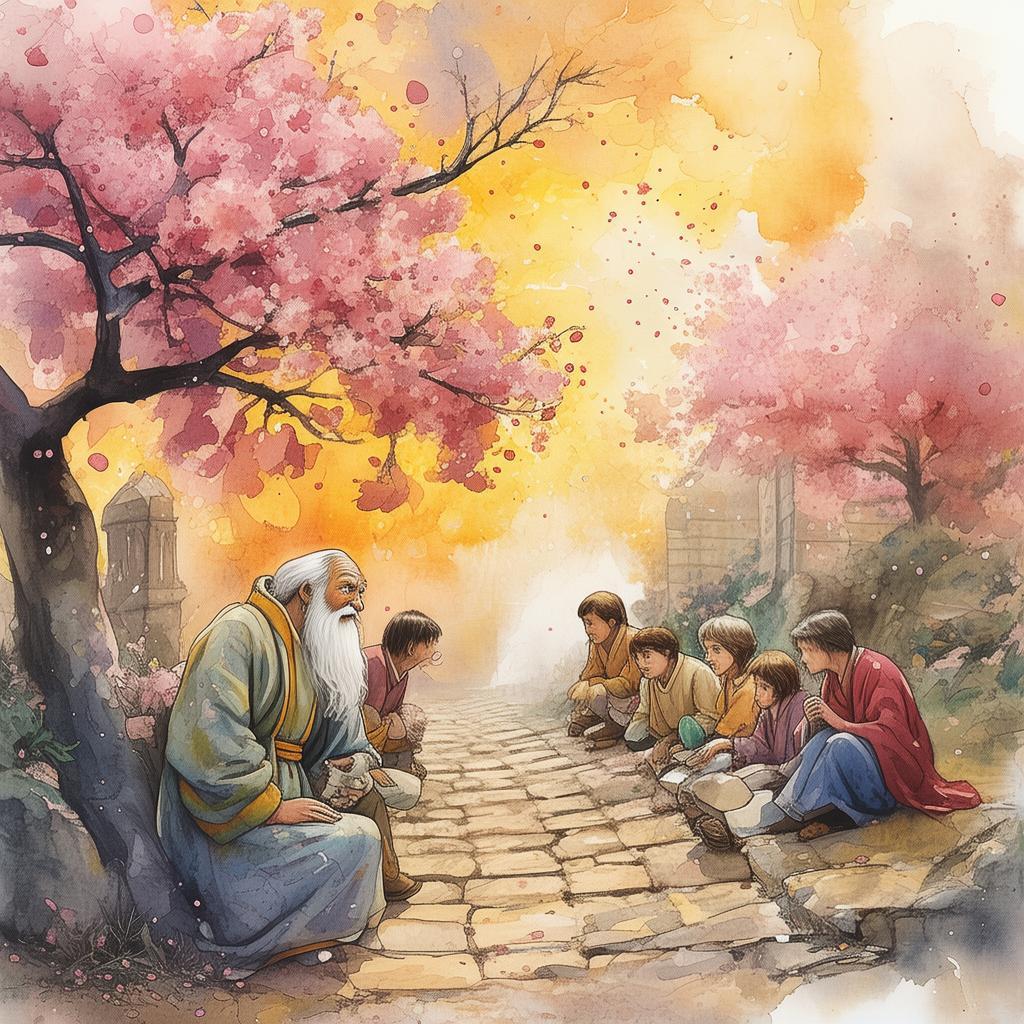Whispers of Echoes: The Symphony of the Unseen
In the heart of a bustling city, nestled between towering skyscrapers and the hum of the daily grind, there was a small, unassuming music shop. It was here that young composer, Liang, found himself on a fateful afternoon. The shop was filled with the scent of aged paper and the soft rustle of forgotten scores. Liang, with his head down, was searching for inspiration when his eyes caught a glimpse of an old, leather-bound book. Its cover was faded, and its edges worn, but the title, "The Pre-Play Symphony A Tale of Echoing Echoes," caught his attention.
Curiosity piqued, Liang purchased the book and returned to his modest apartment, which was a sanctuary of music and solitude. He opened the book, and as he did, a melody began to play in his mind, a melody that was not written on the pages. It was hauntingly beautiful, yet it felt like it was trying to tell a story.
Days turned into weeks as Liang became consumed by the melody. He found himself sketching out notes, trying to capture the essence of the unseen symphony. It was as if the melody was a whisper, calling to him from the shadows. The more he listened, the more he realized that this melody was not just a piece of music; it was a puzzle, a tale waiting to be told.
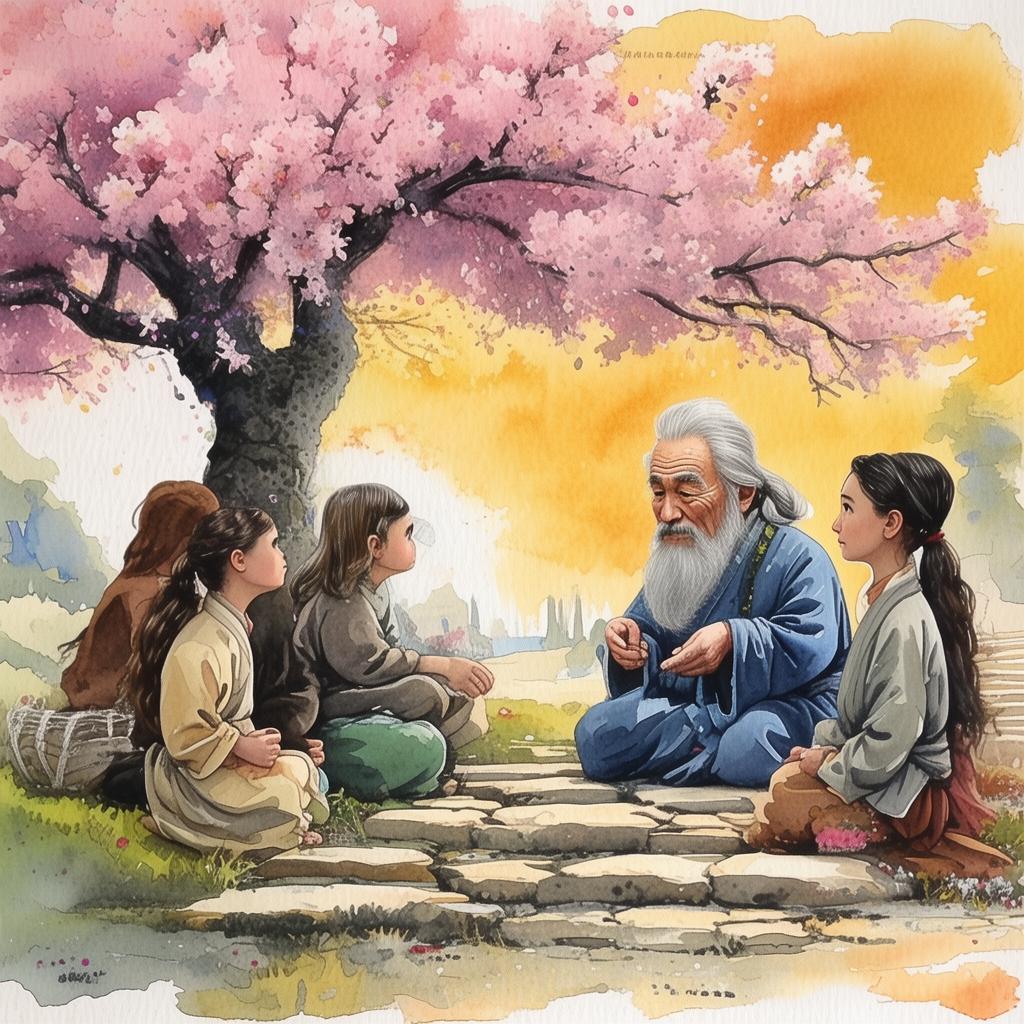
One evening, as Liang sat at his piano, the melody became overwhelming. It was as if the notes were trying to break free from the pages and into the world. In a moment of inspiration, he began to play, his fingers dancing across the keys. The music filled the room, and as it did, the walls seemed to tremble. Liang's neighbors, who had long since grown accustomed to his nocturnal symphonies, found themselves drawn to the window, listening in awe.
As the music reached its crescendo, Liang felt a presence in the room. He turned, expecting to see a friend or neighbor, but there was no one there. The room was empty, save for the music that seemed to have a life of its own. It was then that Liang realized the melody was not just a whisper; it was a call, a call to uncover the echoes of the unseen.
Determined to unravel the mystery, Liang began to search for clues within the book. Each page he turned revealed more of the story, more of the echoes that had been lost to time. He discovered that the melody was a prelude to a symphony that had never been played, a symphony that was meant to be heard by those who could hear the unseen.
The journey was not an easy one. Liang faced obstacles at every turn, from deciphering cryptic messages to navigating the treacherous waters of his own mind. But as he pressed on, he discovered that the melody was more than just a piece of music; it was a key to unlocking the secrets of the past.
One evening, as the moon hung low in the sky, Liang found himself at an old, abandoned concert hall. The air was thick with the scent of decay, and the silence was almost oppressive. He approached the piano, its surface covered in dust and cobwebs. With trembling hands, he began to play. The melody filled the hall, and as it did, the echoes of the unseen began to resonate.
The music brought with it visions of a time long past, of love and loss, of triumph and despair. Liang saw the composer of the symphony, a woman named Mei, who had been driven to madness by the whispers of her own creation. He saw her struggle, her sorrow, and her triumph over the unseen forces that had haunted her.
As the music reached its conclusion, Liang felt a sense of release. The echoes of the unseen had been heard, and the symphony was complete. He looked around the concert hall, and for the first time, he saw it not as a place of decay, but as a sanctuary, a place where the unseen could be made visible.
Liang returned to his apartment, the melody still echoing in his mind. He knew that his journey was far from over, but he also knew that he had uncovered a truth that would change his life forever. The whispers of the unseen had spoken to him, and he had listened.
The next day, Liang returned to the music shop, but this time, he was not searching for a book. He was searching for a new melody, one that would resonate with the echoes of the unseen. And as he began to play, he knew that the symphony of the unseen was just beginning, and he was ready to compose its next chapter.
✨ Original Statement ✨
All articles published on this website (including but not limited to text, images, videos, and other content) are original or authorized for reposting and are protected by relevant laws. Without the explicit written permission of this website, no individual or organization may copy, modify, repost, or use the content for commercial purposes.
If you need to quote or cooperate, please contact this site for authorization. We reserve the right to pursue legal responsibility for any unauthorized use.
Hereby declared.
